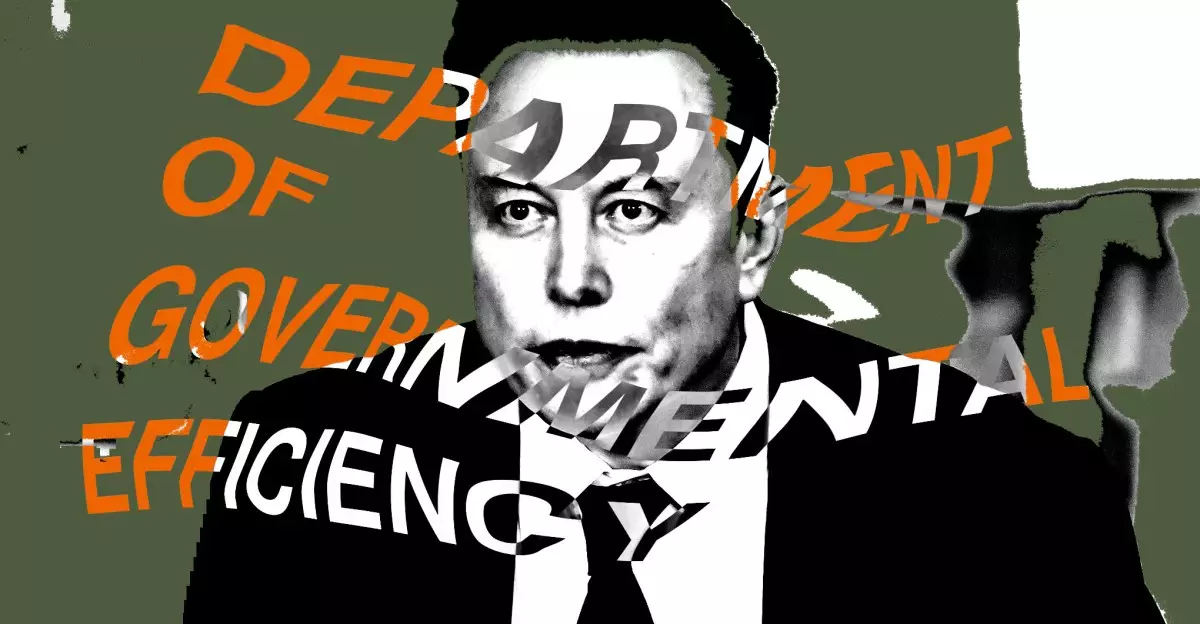In a shocking turn of events, the advocacy group Public Citizen has initiated legal proceedings against Elon Musk and his associates, challenging their questionable access to the federal government’s payment systems. This action arrives on the heels of alarming revelations about potentially unauthorized access to sensitive financial information, raising concerns about the sanctity of private data and government accountability in an increasingly privatized economy. With implications reaching far beyond the courtroom, this case serves as a bringer of urgent conversations regarding privacy rights, the IRS’s confidentiality standards, and the broader governmental integrity.
Understanding the Allegations Against Musk and the Treasury Department
The lawsuit, lodged in a Washington, D.C. federal court, asserts that Musk’s encroachment into these payment systems exemplifies a troubling blend of personal ambition and sweeping authority, encapsulated in the so-called “Department of Government Efficiency” (DOGE) that Musk purportedly leads. The crux of the complaint centers not only on Musk’s alleged unlawful actions but also on the accountability of the Treasury Department, which is accused of flouting the Privacy Act of 1974 and jeopardizing citizens’ personal information by granting Musk and his team unprecedented access. With a formidable alliance of labor organizations supporting Public Citizen’s case, including the Alliance for Retired Americans and the Service Employees International Union, this lawsuit captures a wide array of stakeholders who recognize the ramifications of Musk’s access beyond mere financial transactions.
The allegations highlight key legal doctrines designed to protect American citizens from unwarranted government intrusion, emphasizing that individuals should not be compelled to share their private information with outside parties—especially individuals associated with corporate interests—without due oversight and reason.
The controversy has galvanized political figures, prompting Senators Ron Wyden and Elizabeth Warren to seek clarity regarding the extent of Musk’s access to federal payment systems. The inquiries sent to Secretary Scott Bessent meticulously question the protocols that were followed—and whether safeguards exist to prevent misuse. Wyden’s insistence on avoiding “politically-motivated meddling” reflects a growing concern that the outdated frameworks governing government operations are increasingly inadequate in protecting the interests of everyday Americans.
Moreover, the urgency in their correspondence underscores a larger battle of ideologies: the balance of privatization gains against the imperatives of public accountability. As lawmakers demand transparency into Musk’s role, the potential for a tumultuous power struggle looms between governmental entities and private ambitions. The demand for a timely response from Bessent reveals an underlying commitment to protecting citizens’ rights, even as some members of the political establishment grapple with allegations of favoritism in favor of corporate giants.
Bradley Moss, a national security lawyer, elucidated potential legal repercussions that could emerge from this scenario, warning against the systemic weakening of federal oversight. In an era where the boundaries between government and business interests become increasingly porous, the risks of detrimental oversights impacting the most vulnerable citizens escalate. Should DOGE act beyond its bounds, the ramifications could extend not only to those whose funding is jeopardized but also to the overall trust in federal systems designed to maintain order and safeguard information.
Moss’s remarks highlight a critical second layer of impending conflicts wherein congressional challenges might emerge, effectively positioning legislators against perceived overreach by executive efforts. The engagements between lawmakers, national security officials, and Musk’s team evoke broader conversations about improving and modernizing existing legislation to dovetail with technological advancements.
As the legal proceedings unfold and scrutiny intensifies around Musk’s access to government payment systems, this case is emblematic of a larger struggle for the soul of American governance. The combination of political ambition, technological evolution, and the quest for efficiency must be examined closely within the framework of legality and ethics. With significant implications for privacy and accountability, this trial transforms into a litmus test for the resilience of regulations designed to safeguard citizen rights against encroaching private interests. Society must advocate for vigilant oversight to ensure that government functions prioritize citizen trust and transparency, without which democracy can face perils that extend beyond the courtroom and into the fabric of society.

